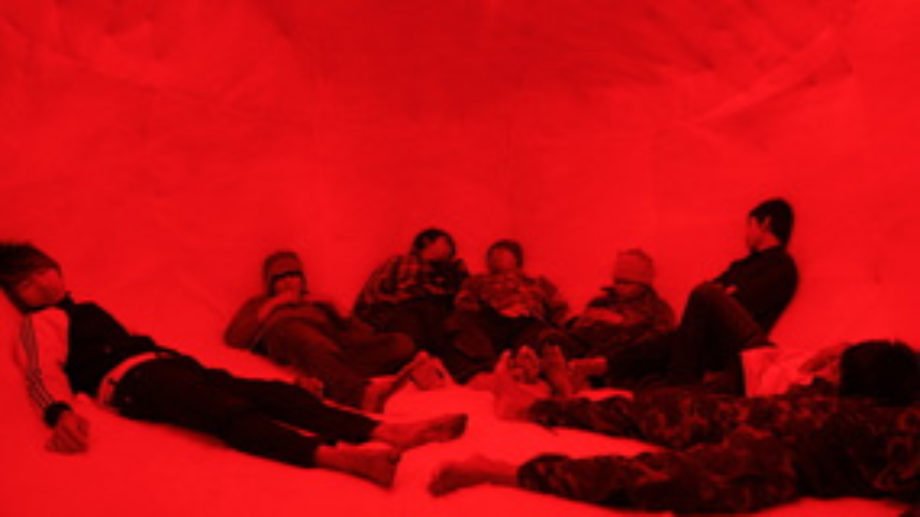
Long a favorite on the international film scene for pushing the boundaries of narrative cinema, Thai director Apichatpong Weerasethakul was awarded the prestigious Palme d’Or at Cannes last year for his feature Uncle Boonmee Who Can Recall His Past Lives. Weerasethakul is now in New York for his first local museum exhibition as well as a month-long residency at the New Museum. We’re big fans of his at the Film Society, so we attended his four-hour master class on the rainy Sunday afternoon of May 15 and spoke to him the next day about past films, future projects, and lesser-known sides of his work.
Primitive Project
The “Apichatpong Weerasethakul: Primitive” exhibition at the New Museum showcases the artist’s multi-platform project based in the Northeastern village of Nabua, and a large portion of the Weerasethakul's lecture was devoted to giving context to the project. Drawn to the area’s turbulent history of decades-long clashes between the Thai army and communist fighters, Weerasethakul became immersed in the second-hand stories that would later serve as inspiration for a series of short films, photographs, and installations, as well as a precursor to the Uncle Boonmee feature film. “This is something very not what I do,” Weerasethakul said, referring to working with such a politically charged history. “I couldn’t get [these stories] out of my mind, so we decided to go back to this village. I just lived there and filmed for several months.”
“It was a mixture between making artwork and movie,” Weerasethakul told the crowded room. Subtly mixing fact and fiction, Primitive contains many indirect references to Northeast Thailand’s past. He developed the prototype of the “monkey ghost” that would later appear in the Uncle Boonmee feature, inspired by the men of Nabua who were forced to hide in the jungle for years; experiments with different forms of light brought memories of military flares used at night to hunt out the communists. Fascinated by his work, villagers gathered for the spectacle as Weerasethakul had special-effects artists create lightning for the short film Phantoms of Nabua. “No matter what, movie-making is still magic,” Weerasethakul said.

Apichatpong Weerasethakul at his multimedia presentation and lecture on May 15 at the New Museum.
Narrative Storytelling
Perhaps one of the most revealing comments Weerasethakul made was when discussing his first feature film, the experimental Mysterious Object at Noon, in which he asked people to narrate a continuing story. “The idea was to illuminate authorship, people’s imagination, and how they treat narrative,” he said. “I found I’m not a good storyteller, I’m not a good writer, so I always find stories from secondary sources.” Whether the source is his own painful memories (as it was for Tropical Malady), second-hand memories from his parents (Syndromes and a Century), or the memories of a man who claims to recall his past lives, as documented by a monk in the book on which the Uncle Boonmee feature is based, Weerasethakul’s work comes from an interpretation of human narratives. “In Thailand we’re a very narrative culture – even when I make so-called artwork it’s narrative-based,” he said.
Mekong Project
Weerasethakul's growing list of major international awards hasn’t made financing his films any easier: “being a filmmaker is very hard financially, and it’s harder with award recognition. I always have a similar budget (…) the responsibility is more on me.” He has collaborated with his usual team of actors on the low-budget, still-evolving Mekong Project, which looks at issues like disruptive flooding caused by Chinese dams and diseases in industrial farming. (Tilda Swinton is rumored to be working with him on a new feature centered on the Mekong River.) Before opening up his presentation to an audience Q&A, he ended by showing images from his next short film which features whimsical characters like “Mud Man,” “Electric Man” and “Communication Tower,” set to premiere in Dublin in June. A characteristic fusion of the fantastical with the mundane, they will join the imaginative oeuvre of a man who operates in the film and art worlds like few other directors working today.



